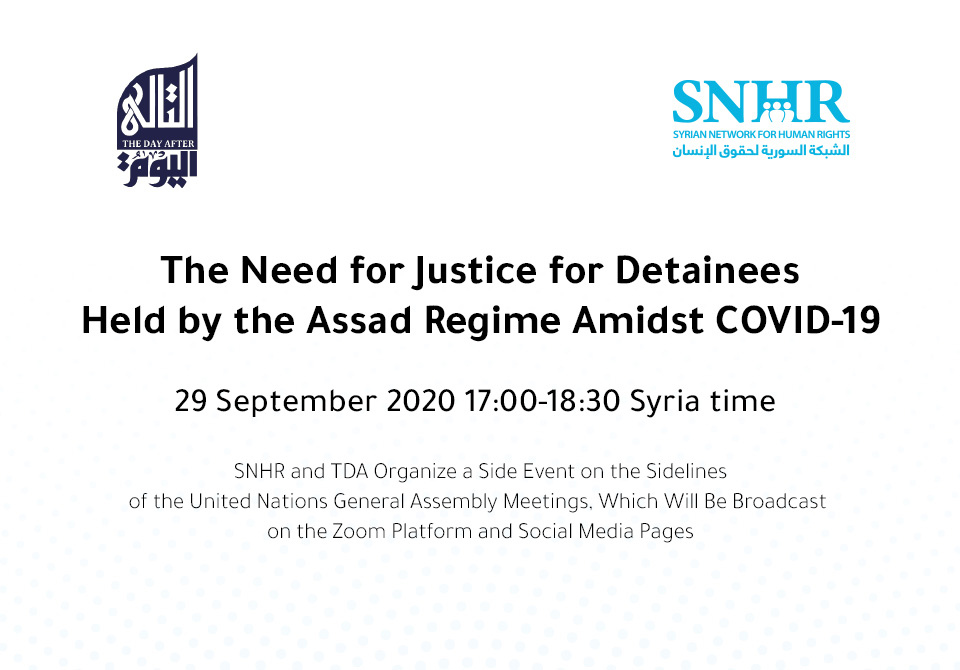
As the world continues to grapple with COVID-19, the international community must focus on the Assad regime’s continued lies about the virus’ spread, the prevention of humanitarian access, the plight of Syrians in arbitrary detention, who remain particularly vulnerable to COVID-19. To this day, at least 131,000 Syrian citizens, including 7,900 women and 3,600 children, remain missing after being arbitrarily detained by the Assad regime, according to the Syrian Network for Human Rights.
As reported by the UN Commission of Inquiry (COI), the vast majority of these people were detained solely for their participation in calls for reform and for a government that recognizes their rights. These arrests take place in the form of abductions carried out without any legal warrant, and the detainees’ families are often denied any knowledge of where their loved ones are being held. Detainees cannot communicate with the outside world or even with a lawyer. Detainees are subjected to extremely brutal methods of torture and suffer in horrendous, overcrowded cells under filthy conditions ripe for the spread of COVID-19. The COI has described these practices as crimes against humanity.
Such crimes require serious and urgent action from the international community to support efforts to hold perpetrators accountable.
Building on all of the above, the event will focus on the following key questions:
– What is the impact of the COVID-19 pandemic on arbitrarily detained persons in Syria, and how is it possible to pressure the Syrian regime and the other parties to the conflict to release the largest number of them, including the sick and the elderly? What types of support can be provided to survivors of arbitrary arrest, their families, and the families of the missing?
– Why has the Security Council and the international community more broadly struggled to address the plight of detainees and other victims of the Assad regime’s crimes against humanity in Syria?
– What are the most prominent accountability tools available in addition to the sanctions to hold the Syrian regime accountable and advancing a political resolution of the conflict based upon UNSCR 2254?? What role can victims’ groups and Syrian human rights organizations play in this context?
Program:
Opening remarks by Fadel Abdulghany, Head of the Syrian Network for Human Rights (SNHR)
Moderator: Emma Beals, Senior Advisor at European Institute of Peace and Editor of Syria in Context.
Panelists:
Amb. James F. Jeffrey, Special Representative for Syria Engagement and Special Envoy to the Global Coalition to Defeat ISIS, US Department of State
Robert Rohde, Ambassador for the Negotiations on Syria and Head of Division for Syria, Iraq, Lebanon & Anti ISIS Strategy, German Federal Foreign Office
Ivan M. Nielsen, Special Representative for the Syria Crisis, Denmark
Rasha Sharbaji, Popular Uprising Activist and Former Political Detainee
Mutasem Syoufi, Executive Director of The Day After (TDA)
Fadel Abdulghany, Head of the Syrian Network for Human Rights (SNHR)
To participate directly on Zoom, please sign up using the following link.
To watch the live broadcast on social media platforms:
SNHR Twitter
SNHR Facebook
SNHR Youtube
For any additional information, please contact Mr. Abdulla Bassam
(+905312502092; [email protected]).


